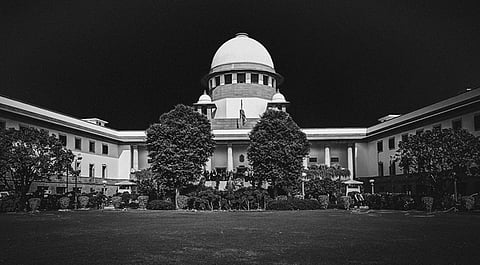
- News
- Columns
- Interviews
- Law Firms
- Apprentice Lawyer
- Legal Jobs
- हिंदी
- ಕನ್ನಡ

In a judgment rendered today, the Supreme Court observed that the integrity of a judicial officer must be of a higher order and that even a single aberration in the same is unacceptable and cannot be permitted.